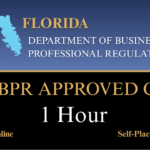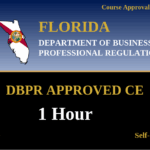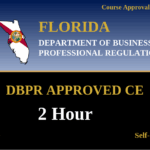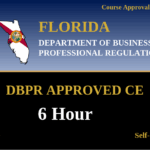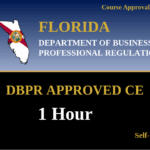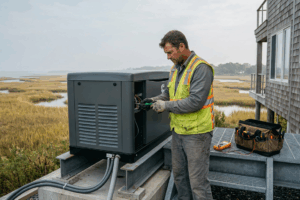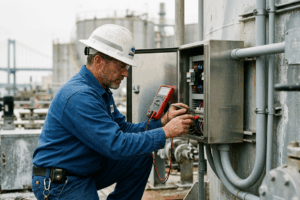
Florida Electrical Contractor License Renewal Guide
Florida Electrical Contractor License Renewal: Your 2026 Renewal Guide
In Florida’s bustling construction landscape, a licensed electrical contractor is always in demand. From residential developments to large-scale commercial projects, the work is plentiful, but it all hinges on one critical detail: maintaining your active license. As the biennial renewal deadline approaches, it’s more than just paperwork; it’s a strategic checkpoint for your career. Understanding the specific requirements set by the Florida Electrical Contractors’ Licensing Board (ECLB) is essential. Failing to meet the license renewal deadline can result in a delinquent license, halting your projects and impacting your bottom line. This guide will clarify the renewal process, break down the continuing education requirements, and explain the crucial differences between state and local licenses, ensuring you stay compliant and competitive in the Sunshine State.
State vs. Local Licensing: The Critical Florida Distinction
Before diving into renewal specifics, it’s vital to understand Florida’s licensing structure, which often causes confusion. The Florida Department of Business and Professional Regulation (DBPR) issues licenses at the contractor level, not for every type of electrician. This distinction impacts your career path, from your initial training at an electrician school or with an NCCER curriculum to becoming a business owner.
- State-Level Licenses (Contractors): The DBPR issues two main contractor licenses: the Certified Electrical Contractor (EC), who can work anywhere in Florida, and the Registered Electrical Contractor (ER), whose work is limited to specific local jurisdictions where they’ve proven competency. These are the licenses that this renewal guide focuses on.
- Local-Level Licenses (Journeyman/Master): Unlike in many other states, Journeyman and Master Electrician licenses are not issued or regulated by the State of Florida. Instead, they are handled by individual counties and municipalities. If you hold a Journeyman or Master license, your renewal requirements, fees, and deadlines are set by your local jurisdiction’s qualifying board, not the state DBPR.
This article focuses exclusively on the state-level renewal process for Certified and Registered contractors managed through the MyFloridaLicense.com portal.
Your Biennial Renewal Checklist: CE Requirements for Florida Contractors
For all state-licensed electrical contractors, the renewal cycle is the same: you must renew your license by August 31st of every even-numbered year (e.g., 2026, 2028). The core of this process is completing your required continuing education. According to the Florida Electrical Contractors’ Licensing Board, the requirements vary slightly by license type and scope of work.
For Certified (EC) and Registered (ER) Electrical Contractors
Most electrical contractors must complete 11 hours of board-approved continuing education every two years. These hours have a specific breakdown to ensure you stay current on multiple fronts.
- 7 Technical Hours: This is the largest block, dedicated to enhancing your practical skills. It must include at least one hour from an advanced module course on the Florida Building Code. Staying sharp on technical topics is crucial, especially with evolving standards like the National Electrical Code (NEC). Understanding how definition changes in the 2023 NEC impact electrical work is a perfect example of valuable technical knowledge.
- 1 Hour of Florida Laws and Rules: Keeps you updated on the state regulations governing your profession.
- 1 Hour of Workplace Safety: Focuses on best practices for job site safety to protect you and your crew.
- 1 Hour of Workers’ Compensation: Covers the essential aspects of workers’ compensation laws and procedures in Florida.
- 1 Hour of Business Practices: Provides insights into running your contracting business effectively.
The Important Exception for Alarm Work
If you are a Certified or Registered electrical contractor who also performs alarm system installation or service, you must complete 2 additional hours on false alarm prevention. This is in addition to the 11 hours detailed above, bringing your total requirement to 13 hours for the biennial cycle.
Completing these state-mandated CEUs is simple with our comprehensive online electrical courses. ExpertCE offers packages designed to meet Florida requirements. Browse our courses today to find a state-approved package that fits your license type.
CE Requirements at a Glance (2-Year Cycle)
Here’s a detailed breakdown of the Florida Electrical Continuing Education Requirements.
|
License Types |
Continuing Education Requirements |
Fee |
Expiration Date |
| Certified Electrical Contractor | 11 hours of Continuing Education must include: 1 hour workers’ compensation 1 hour workplace safety 1 hour business practices 1 hour Florida Laws & Rules 1 hour Florida Building Code advanced module course 6 hours Technical Additionally, 2 hours false alarm prevention is required for all certified electrical contractors who perform alarm work |
$296 |
8/31 Even Year |
| Certified Alarm System Contractor I | 7 hours of Continuing Education must include: 1 hour workers’ compensation 1 hour workplace safety 1 hour business practices 1 hour Florida Laws & Rules 2 hours false alarm prevention 1 hour Florida Building Code advanced module course |
$296 |
8/31 Even Year |
| Certified Alarm System Contractor II | 7 hours of Continuing Education must include: 1 hour workers’ compensation 1 hour workplace safety 1 hour business practices 1 hour Florida Laws & Rules 2 hours false alarm prevention 1 hour Florida Building Code advanced module course |
$296 |
8/31 Even Year |
| Certified Specialty Electrical Contractor | 7 hours of Continuing Education must include: 1 hour workers’ compensation 1 hour workplace safety 1 hour business practices 1 hour Florida Laws & Rules 1 hour Florida Building Code advanced module course 1 hour of Technical 1 hour general credit |
$296 |
8/31 Even Year |
| Registered Electrical Contractor | 11 hours of Continuing Education must include: 1 hour workers’ compensation 1 hour workplace safety 1 hour business practices 1 hour Florida Laws & Rules 6 hours of Technical 1 hour Florida Building Code advanced module course |
$121 |
8/31 Even Year |
| Registered Alarm System Contractor I | 7 hours of Continuing Education must include: 1 hour workers’ compensation 1 hour workplace safety 1 hour business practices 1 hour Florida Laws & Rules 2 hours false alarm prevention 1 hour Florida Building Code advanced module course |
$121 |
8/31 Even Year |
| Registered Alarm System Contractor II | 7 hours of Continuing Education must include: 1 hour workers’ compensation 1 hour workplace safety 1 hour business practices 1 hour Florida Laws & Rules 2 hours false alarm prevention 1 hour Florida Building Code advanced module course |
$121 |
8/31 Even Year |
| Registered Specialty Electrical Contractor | 7 hours of Continuing Education must include: 1 hour workers’ compensation 1 hour workplace safety 1 hour business practices 1 hour Florida Laws & Rules 1 hour Florida Building Code advanced module course 1 hour of Technical 1 hour general credit |
$121 |
8/31 Even Year |
Source: Information derived from DBPR website as of Feb, 2026. Always verify requirements with the DBPR as rules can change.
Navigating the Renewal Process on MyFloridaLicense.com
Once you’ve completed your CEUs, the final steps are straightforward. Your approved course provider will report your completed hours to the DBPR. You can then log in to your account on the official MyFloridaLicense.com portal to pay your renewal fee and finalize the process. Do not wait until the last minute. Missing the August 31st deadline in an even year will cause your license to become delinquent, preventing you from legally pulling permits or performing electrical work. Reactivating a delinquent or inactive license often requires additional fees and sometimes more CE hours.
While the state is currently enforcing the 8th Edition (2023) of the Florida Building Code, which adopts the 2020 NEC, it’s never too early to learn about upcoming changes. For example, understanding differences in the 2023 NEC arc-flash hazard warning requirements can give you a competitive edge on future projects.
What About Fees?
Renewal fees are subject to change and are officially set by the DBPR. While past fee schedules are available, for the most accurate and current renewal fee for your specific license, you must log into your account on the MyFloridaLicense.com portal. It is best practice to verify the fee directly with the Florida Department of Business and Professional Regulation rather than relying on third-party information.
A Note for Journeyman and Residential Electricians
If you are a Journeyman or a residential electrician holding a license from a specific county or city (such as Miami-Dade, Broward, or another municipality), remember that your renewal process is governed locally. You must contact your local building department or licensing board to confirm your specific CE requirements, deadlines, and fees. Do not follow the state-level DBPR requirements unless you also hold a state-certified or registered contractor license.
Florida Continuing Education Courses
Explore our board-approved continuing education courses for Florida professionals:
View CE RequirementsFlorida 1 hour course on workers’ compensation
Florida 1 hour course on workplace safety
Florida 2 hours course on false alarm prevention
Florida 6 hours electrical CE course (Technical)
Florida 1 hour business practices course
Disclaimer: The information provided in this educational content has been prepared with care to reflect current regulatory requirements for continuing education. However, licensing rules and regulations can vary by state and are subject to change. While we strive for accuracy, ExpertCE cannot guarantee that all details are complete or up to date at the time of reading. For the most current and authoritative information, always refer directly to your state’s official licensing board or regulatory agency.
NEC®, NFPA 70E®, NFPA 70®, and National Electrical Code® are registered trademarks of the National Fire Protection Association® (NFPA®)

